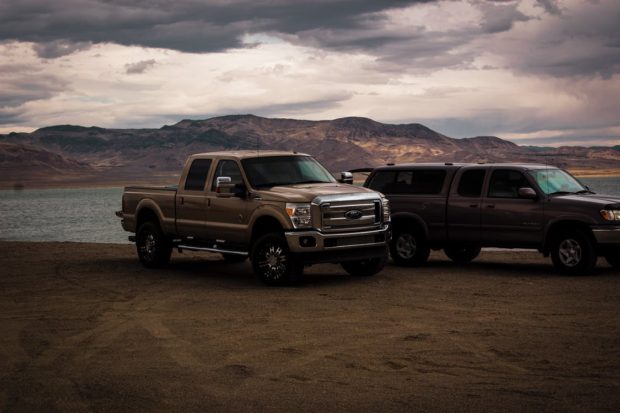
Muscle cars give drivers the thrill of faster speeds and high-performance engines. These vehicles look fantastic, and they are fun to drive, but are they affordable? And are muscle cars all that practical when their size can be a little on the smaller side?
This is where muscle trucks and other types of trucks enter the picture. Not everybody is into the look of a truck, especially if you are not planning on hauling anything around in the back end of it. Still, they are quite economical in many situations.
How much does a Ford F-150 cost? Is it more expensive to insure a truck or a car? How does the make and model of the vehicle get taken into account for the insurance rates? All these questions will be addressed in your quest to find the best deal on cars versus trucks.
The Differences Between Muscle Cars and Trucks
People love how fast muscle cars are. They always have V8 engines and rear-wheel drive, lending to hot rides in the summer nights with the windows down and the breeze blowing your hair back.
Contrary to popular belief, muscle trucks can have the same fast characteristics as their compact counterparts. They also have the added advantage of the rear bed to carry cargo, and they are usually more durable in the elements and through wear and tear.
A drawback to trucks is that they are usually more expensive upfront when purchasing than cars. The sheer amount of extra equipment on most of them leads to these prices, but you can save money on them in the long run because their insurance rates are usually cheaper.
If you are interested in showing off your muscle vehicle at an event or show, you can probably find someone willing to put trucks on the floor because they will stand out more among the crowd of muscle cars, which are the more common vehicle.
What are the insurance rates on trucks compared to cars?
Trucks, whether they are muscle trucks or standard trucks, have a track record of better insurance rates compared to cars. Trucks like the Ford F-150 average $200 less in insurance prices annually compared to all other vehicles (including all models of cars and trucks).
Why would insurance rates be better for trucks than for cars? There are several possibilities. Trucks are not seen as vehicles to drive for reaction or casual fun. They are usually thought of as being practical and work-related, maybe for taking a trip to the landfill or moving your neighbor’s stuff from their old house to their new apartment.
There won’t be as much speeding or as many reckless driving decisions. Another reason tied to this one is that young drivers are less likely to drive trucks.
Trucks are more expensive to purchase, so parents are not usually buying one for their kids. Driving more often by young people leads to the typical hikes in insurance rates for inexperienced drivers.
That leaves it up to you what you value more in a vehicle: cheaper to buy or more inexpensive to insure? The choice is yours. Just know that you can get many of the same features on both, contrary to the stereotypes.
Shawn Laib writes and researches for the insurance comparison site, ExpertInsuranceReviews.com. He wants to help customers make the smartest decisions possible when buying and selling their vehicles and learn how to find insurance.
VN:F [1.9.22_1171]
VN:F [1.9.22_1171]
Source link


